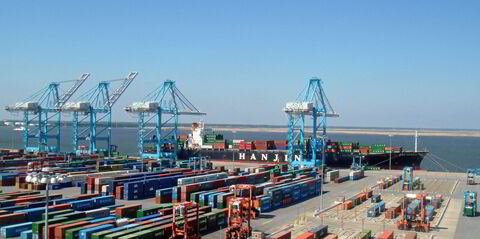Canada approved a new crude oil pipeline that will result in a big increase in tanker transits out of the Port of Vancouver.
The Justin Trudeau-led government approved the Trans Mountain expansion project, backed by the pipeline's owner Kinder Morgan. The project will triple the volume of crude oil carried from Canada's oil producing province of Alberta to British Columbia.
The approval also includes a permit for the Kinder Morgan-owned Westridge Marine Terminal to increase the number of tanker transits it can receive from five to 34 per month.
The Westridge marine terminal currently fills tankers destined for short-haul markets in the Seattle region. But the new pipeline should mean tanker transits to Northeast Asia as well as other US markets, such as California and Hawaii.
Tanker ban also moves forward
Canada declined to approve another crude oil export pipeline called the Northern Gateway, sponsored by Enbridge.
That pipeline would have created an export terminal further north along the coast of British Columbia. But in an announcement late Tuesday, Canada's federal government said it will introduce legislation next year to formalise a ban on dirty product tankers entering or leaving ports along the northern portion of British Columbia.
The ban covers a stretch of the province from the southern border of Alaska to the northern tip of Vancouver Island.
The country has had an informal ban on crude oil tankers from transiting too close to the coast of British Columbia since 1985. The ban mostly affected the coastwise movement of crude oil tankers from Alaska to refineries in the Seattle region. The ban, though, will not affect tankers carrying clean petroleum products.


